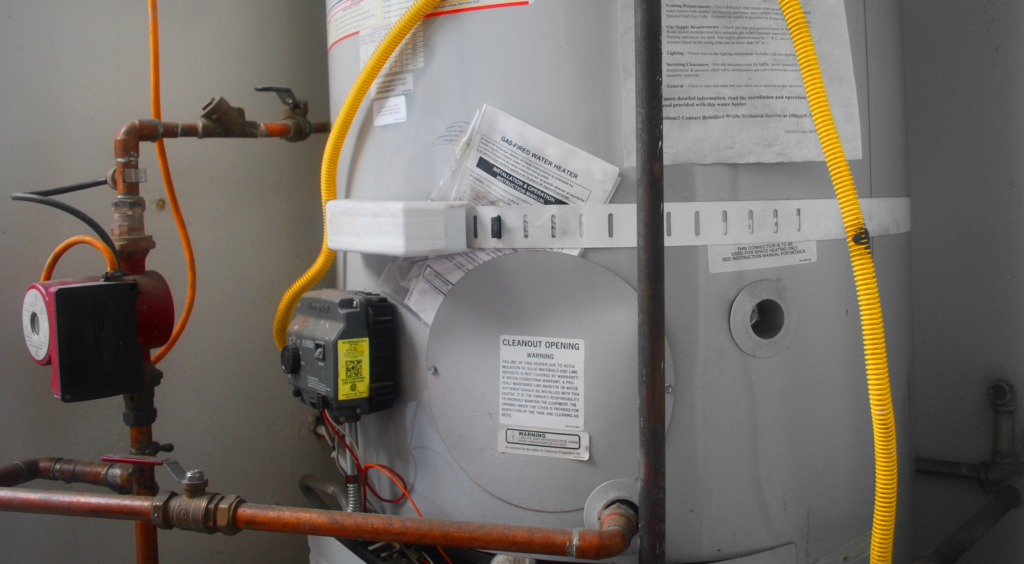UCLA Law Clinic Files Amicus Brief Seeking Review of Decision in Berkeley Gas Case
The Environmental Law Clinic joins other local, state, and federal governments, as well as NGOs, in urging the Ninth Circuit to take a second look at the case.

Yesterday, the UCLA Environmental Law Clinic filed a brief in the California Restaurant Association v. Berkeley case on behalf of seven law professors: our own William Boyd, Dan Farber and Sharon Jacobs at UC Berkeley, Jim Rossi at Vanderbilt, David Spence at UT Austin, Shelley Welton at UPenn, and Hannah Wiseman at Penn State. (The same group that weighed in on this case last year, when it was first heard by the Ninth Circuit.) The professors are amici curiae, meaning that they are offering their considerable expertise in energy and environmental law to the court to help it decide an issue.
In this case, they’re explaining why the Ninth Circuit should accept Berkeley’s petition to rehear the case “en banc,” that is, convene a group of eleven judges to review the decision that a panel of three judges issued back in April. I’ve written about that three-judge panel decision before (as has Amy Turner at the Sabin Center, and much more coherently), but the gist is that the panel struck down a Berkeley ordinance limiting the installation of gas lines in new buildings, based on a part of the federal Energy Policy and Conservation Act (EPCA) that preempts state and local regulations “concerning the . . . energy use” of appliances regulated by EPCA. The panel’s reasoning was that, by preventing some buildings from having gas infrastructure, the ordinance could prevent some EPCA-regulated gas appliances from operating in those buildings, therefore eliminating one form of those appliances’ “energy use.”
The law professor amici point out that this expansive interpretation of EPCA preemption threatens state and local governments’ traditional role in regulating utility “distribution”; that is, the last-mile transportation of gas and electricity to its end uses. States and localities have been in charge of this portion of energy regulation for as long as gas regulation has been a thing. Congress explicitly protected this sphere of local control in passing the major federal energy laws (the Natural Gas Act and the Federal Power Act), a fact which federal courts have recognized in the past. But, as the brief explains, the panel opinion upends this traditional, federalist approach to energy regulation by saying that states and localities can’t decide when new gas infrastructure gets installed at the building level.
The brief also notes that the disruption from the panel opinion could extend much further. States and localities do many things that could be seen as preventing an EPCA-covered appliance from operating—like prohibiting heaters from being installed where they could create safety hazards, or refusing to allow hookups to gas appliances that could damage the distribution system, or even deciding not to allow the expansion of a utility franchise into an area. We don’t yet know how far litigants will be able to go in leveraging the panel opinion to strike down local regulation. But that’s part of the problem: Left as-is, the panel opinion could lead to a lot of confusion and turmoil until we figure out where, exactly, the line between federal and state authority should be drawn.
Our clients are joined by governments at all levels, as well as major environmental and public-health organizations, all of whom are supporting Berkeley’s request to rehear the case en banc:
- The United States government, noting the disruption the panel opinion would have on the Department of Energy’s operations (the fact that the federal government has weighed in in is particularly notable, since it rarely argues against federal preemption and also rarely submits amicus briefs on the question of whether a circuit court should rehear a case);
- A coalition of states, the District of Columbia, and New York City, stressing the potential impact on a range of state and local regulations;
- The New York Public Services Commission, raising concerns about the opinion impinging on their role as the state’s utilities regulator;
- The National League of Cities, League of California Cities, and California State Association of Counties, highlighting the threat the panel opinion poses to local police power;
- Physicians for Social Responsibility and the American Thoracic Society, describing the damage that the panel opinion could do to state and local health regulation;
- The Sierra Club, describing the decision as a setback for state and local clean-building policies;
- The Guarini Center at NYU Law, pointing out further flaws in the panel’s opinion; and
- A group of cities and mayors, who filed a shorter letter supporting rehearing and describing the confusion engendered by the panel opinion
Now that all these briefs are in, the Ninth Circuit will likely set a timeline for the industry group that challenged Berkeley’s ordinance to respond and explain why the case shouldn’t be reviewed. The panel judges will probably also have an opportunity to explain their reasoning to their colleagues, though that will be internal—we won’t get to see it. Assuming at least one judge thinks it’s worthwhile, all of the active, non-recused judges on the court will vote on whether to rehear the case. If a majority agree to do so, the panel opinion will become uncitable and the Chief Judge and ten randomly selected circuit judges will form an “en banc court” to issue a new opinion, possibly after further briefing or argument from the parties.







Reader Comments